#Legislation
Are Government Officials Souring On Automotive Autonomy?
Thanks to the incredibly lax and voluntary guidelines outlined by the National Highway Traffic Safety Administration, automakers have had free rein to develop and test autonomous technology as they see fit. Meanwhile, the majority of states have seemed eager to welcome companies to their neck of the woods with a minimum of hassle. But things are beginning to change after a handful of high-profile accidents are forcing public officials to question whether the current approach to self-driving cars is the correct one.
The House of Representatives has already passed the SELF DRIVE Act. But it’s bipartisan companion piece, the AV START Act, has been hung up in the Senate for months now. The intent of the legislation is to remove potential barriers for autonomous development and fast track the implementation of self-driving technology. But a handful of legislators and consumer advocacy groups have claimed AV START doesn’t place a strong enough emphasis on safety and cyber security. Interesting, considering SELF DRIVE appeared to be less hard on manufacturers and passed with overwhelming support.
Of course, it also passed before the one-two punch of vehicular fatalities in California and Arizona from earlier this year. Now some policymakers are admitting they probably don’t understand the technology as they should and are becoming dubious that automakers can deliver on the multitude of promises being made. But the fact remains that some manner of legal framework needs to be established for autonomous vehicles, because it’s currently a bit of a confused free-for-all.
Safety Group to Senate: Clue in to the 'Baseless and Exaggerated Predictions' Swirling Around Autonomous Vehicles
Last year, the National Highway Traffic Safety Administration embraced autonomous technology by redefining how it categorized cars. Spurred by automakers and tech companies, the government has opened its eyes to this new technology and seen it as a way to potentially save lives by reducing the number of roadway accidents caused by human error.
Congress has been confronted with numerous pieces of legislation on the matter, too — prospective laws that would allow automakers to put hundreds of thousands of autonomous vehicles on the street, without the need to adhere to existing safety regulations. Many have called the move necessary if the United States hopes to be the first country to produce a truly self-driving car and start saving some lives.
It sounds almost too good to be true, and some claim it actually is. A group of public interest organizations is attempting to sound the bullshit alarm, claiming automakers are misleading government officials in the hopes of developing and profiting from unproven technology.
This New Florida Bill Would Make It Illegal to Have Your Car Stolen
Florida lawmakers are pushing a new bill that would make it illegal to have your car stolen if you haven’t bothered to take the keys out of the ignition. While accidentally prepping a car for prospective thieves is easily one of the dumbest things you can do, making it illegal to leave it running while you pop in to buy a pack of gum sets us up for a nice slippery slope argument.
Last week, State Representative Wengay Newton and Senator Perry Thurston introduced matching proposals (House Bill 927 and Senate Bill 1112) that would make leaving your car unattended without stopping the engine, locking the ignition, and removing the key a second-degree misdemeanor. Under the Florida statute, the crime would be punishable with a $500 fine and up to 60 days in jail.
Say Goodbye to EV Tax Credits Under New GOP Tax Plan
It’s the last thing Elon Musk wants to hear and it’s likely not something General Motors will be too pleased about. Contained within the tax plan introduced by House Republicans Thursday is the elimination of a huge driver for electric vehicle sales — the $7,500 EV tax credit.
Automakers, and especially the two mentioned above, already stood to lose their credits in the near future (there’s a 200,000-vehicle-per-manufacturer cap), but the new tax bill would see the buyer incentive permanently removed, not renewed, as many had hoped. Such a move could slam the brakes on a still-fledgling segment in the U.S.
Germany Forced to Appear Proactive as Anti-diesel Prejudice Swells in Europe
With Paris, Madrid, Athens, and Mexico City all pledging to ban diesel vehicles from entry within the next few years, the fuel’s future doesn’t look particularly bright. While citywide bans like these are becoming increasingly popular in Europe, diesel vehicles still account for almost half of the continent’s registered vehicles.
Germany, which has been speedily moving away from the fuel since Volkswagen’s emissions fiasco, provided more than its fair share of those diesel-powered models. It’s been mulling over how to handle it’s own regulatory matters pertaining to the fuel and the rest of the European Union’s intense pressure doesn’t seem to have fazed it.
Instead of enacting the same transportation ban on diesel vehicles as seen in Paris, Germany has decided to furnish its automakers with the opportunity to clean up their act. Industry officials and politicians have agreed to implement software updates on existing vehicles specifically to keep them eligible for operation within major metropolitan areas. Considering Mercedes-Benz just offered to “voluntarily” recall 3 million Euro-spec cars fitted with diesel engines, that’s incredibly good timing. Likewise, Volkswagen Group claims it will update 850,000 Porsche and Audi vehicles equipped with larger diesel motors.
GM Lobbyist Says Company Doesn't Push Bills, Lawmakers Disagree
For now, legislation restricting the use of those pesky self-driving cars is mainly up to individual states. Because no one wants an experimental, untested car piloting their local roadways, states have erected legislative safety barriers that, for the most part, restrict pilot projects in certain areas, or on certain roads.
As everyone waits for the National Highway Traffic Safety Administration to make up its mind and put blanket regulations in place, an angry chorus of complaints from Silicon Valley startups is growing louder, accusing state lawmakers of favoring the old guard when it comes to fostering automotive technology.
Only naturally, concerns about corporate money influencing government decisions arose. One automaker’s political action fund seems more active than others
No Driver? No Problem: Michigan Just Legalized Autonomous Cars on Public Roads
Vehicles without steering wheels, brake pedals, or even drivers are now allowed to operate on public roads in Michigan.
Today, Gov. Rick Snyder signed a package of auto industry-backed legislation that permits automakers and technology companies to develop, test and even sell autonomous vehicles in the Mitten State. The policy even enables autonomous ride-hailing services, provided that the vehicles have undergone certification.
Michigan is now the wild frontier for self-aware cars.
Senator Pushes for Federal Historic Vehicle Registry
Is your car truly rare or unique? Does it represent a small but significant piece of American history? (We’re not talking about a 1983 Mercedes-Benz 380SL once owned by Gary Busey.)
If so, your ride could one day be immortalized — in a bureaucratic sense. Yesterday, Michigan Senator Gary Peters (D) introduced a bill that, if passed, would create a federal registry for historic vehicles.
Michigan's Self-Driving Dream Is Now Just a Vote Away
If the House approves it, Michigan will become the first state to allow autonomous vehicles to drive on certain public roads, at any time, for any purpose.
According to the Detroit Free Press, the state Senate has unanimously approved four bills aimed at making Michigan the self-driving mecca of the U.S., giving consent for autonomous vehicles to operate on 122 miles of public roads, not just on closed courses during pilot projects.
Does New Jersey Really Want to Ban Drivers From Drinking Coffee?
New Jersey Democrats are pushing a wide-ranging distracted driving bill that would lead to harsh penalties for motorists, but does it mean cupholders will soon be outlawed in the Garden State?
The answer: probably not, but the bill would give law enforcement the blanket regulation they need to lay a charge for anything from eating behind the wheel to fixing your hair.
'Can I Have Your License, Registration and Phone, Please'
As the state of New York debates new distracted driving legislation, an Israeli firm is putting the finishing touches on a “textalyzer” device that could rat out drivers for using their phone before a crash.
Israeli mobile forensics firm Cellebrite developed the data-scanning device, according to Ars Technica, which could become the newest — and most controversial — law enforcement tool since the Taser.
Cellebrite, which sounds like a medication for over-sexed honors students, specializes in data extraction and decoding, and boasts of its 15,000-plus military and law enforcement customers on its website. The firm really knows its stuff — it’s generally believed that they helped the FBI hack into the iPhone at the heart of the San Bernardino/Apple controversy.
Bipartisan Bill Aims to Kill EPA Racecar Regulation
Attention, racecar enthusiasts: Your Congressional representatives are looking out for you!
Normally, this phrase would be met with suspicion and outright fear, but for those fighting the Environmental Protection Agency’s proposed regulation on racecar conversions, it’s the best news they’ve had in weeks.
A bipartisan bill introduced in Congress would protect the track-only use of modified street vehicles for use in competition, a practice the EPA is seeking to prohibit.
U.S. Transportation Department Seeks $4B For Future Autonomous Cars
U.S. Department of Transportation Secretary Anthony Foxx on Thursday said his department would seek nearly $4 billion over the next 10 years to standardize rules for self-driving cars and make it easier for carmakers to offer more autonomous vehicles.
The plan was mentioned Tuesday by President Barack Obama during his final State of the Union address and detailed by Foxx at the North American International Auto Show in Detroit.
The plan would create a uniform autonomous vehicle policy for states to adopt and would allow more exemptions from current safety regulations for self-driving technology.
Only a few states currently allow autonomous vehicles on their roads, including California, Nevada and Michigan.
Direct Sales, Ride-Hailing Bills Among Those DOA In Texas House
Tesla and Uber are among those whose efforts were for nothing as a crucial deadline to win approval on the Texas House floor passed last week.
Coal Rolling Banned In New Jersey
Dudebros in their diesel brodozers will need to take their coal rolling outside of New Jersey, as the state has banned the practice.




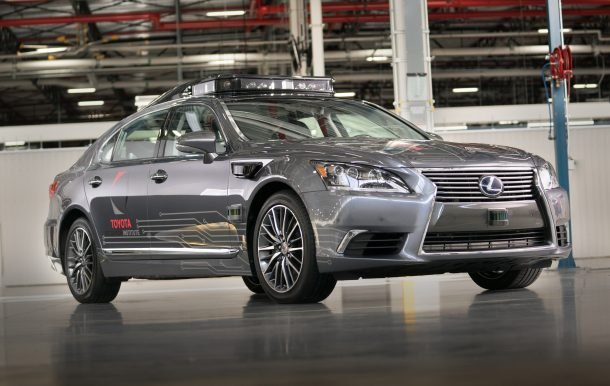



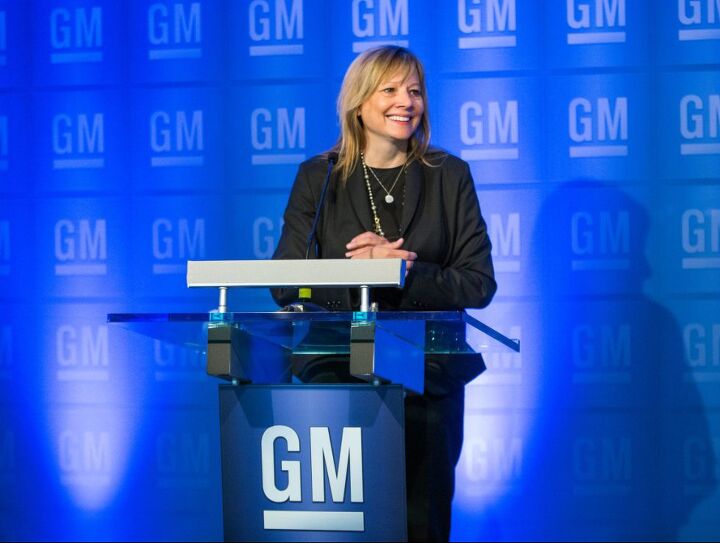

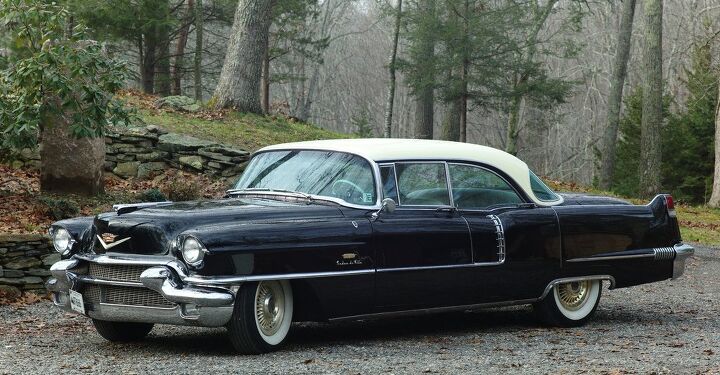
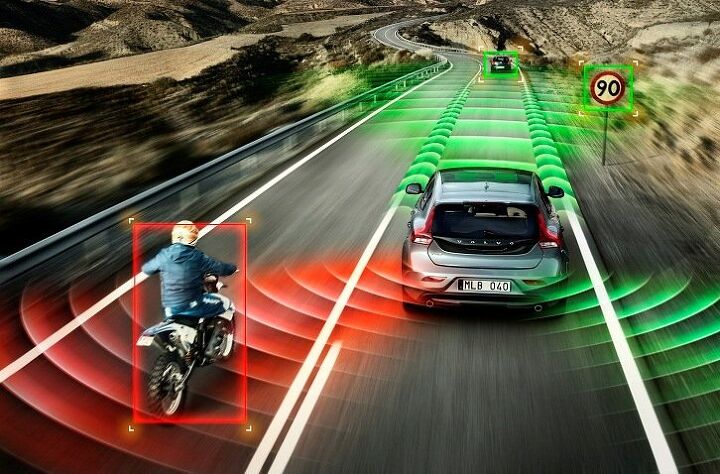



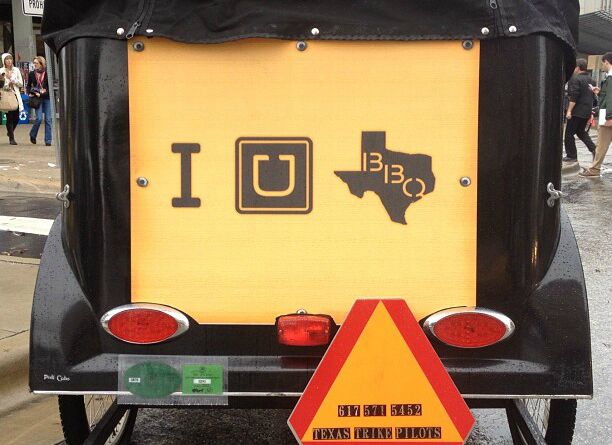













Recent Comments